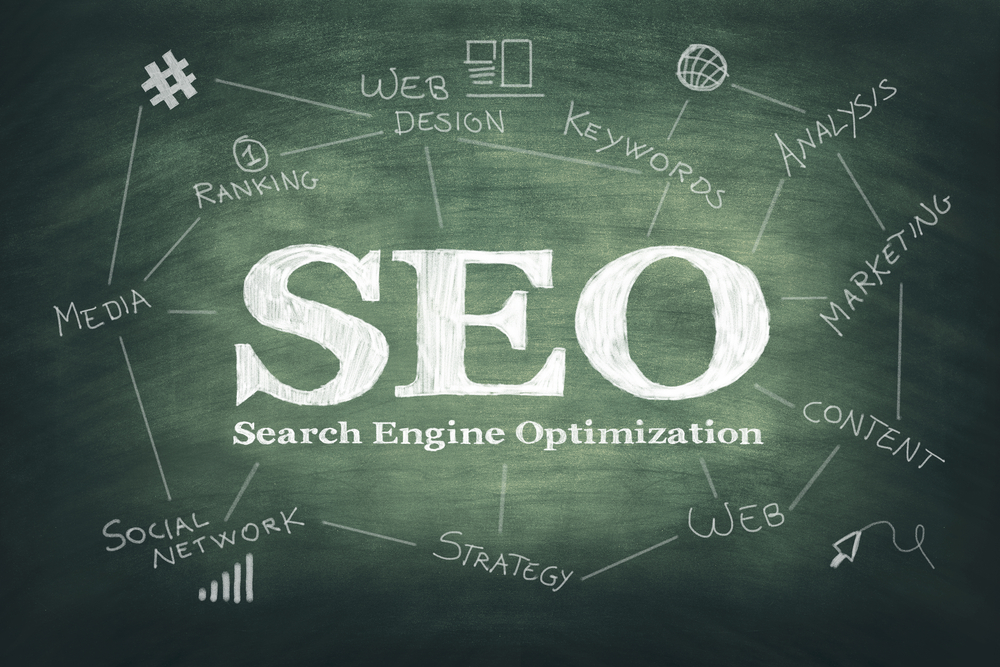
Boost Your Website's Visibility: Essential SEO & Link Building Tips

When it comes to building a successful online presence, search engine optimization (SEO) is key. SEO is the practice of optimizing your website to increase its visibility and ranking on search engine results pages (SERPs). In this article, we will discuss essential SEO/SEM and link building tips that can help boost your website's visibility and drive more organic traffic.
The Importance of SEO
Having a beautifully designed website is not enough to attract visitors. Without proper optimization, your website may struggle to rank high on search engines, making it difficult for potential customers to find you.
SEO helps search engines understand your website's content and purpose, making it easier for them to recommend your site to relevant users. By implementing effective SEM/SEO strategies, you can improve your website's visibility, driving targeted traffic and increasing the chances of converting visitors into customers.
1. Conduct Keyword Research
Keywords play a crucial role in SEO and are the building blocks of any successful optimization strategy. Start by brainstorming relevant keywords and phrases that are closely related to your business. Use online tools like Google Keyword Planner, SEMrush, or Moz's Keyword Explorer to find additional keyword ideas and to determine their search volume and competitiveness.
Once you have a list of keywords, strategically incorporate them into your website's content. However, be mindful not to overuse them, as keyword stuffing can have a negative impact on your search rankings.
2. Create Quality Content
Content is king in the world of SEO (or SEM) . Search engines prioritize websites that offer valuable, informative, and original content to their users. Developing high-quality content not only increases the chances of ranking higher on SERPs but also encourages users to spend more time on your website, reducing bounce rates.
When creating content, consider your target audience's needs and interests. Craft engaging blog posts, informative articles, and visually appealing media that answers their questions and addresses their pain points. Remember to optimize your content with relevant keywords to increase its visibility.
3. Optimize On-Page Elements
On-page optimization refers to optimizing various elements on your website to improve its search rankings. Here are a few essential on-page elements to optimize:
Title Tags: Create unique and descriptive title tags for each page, incorporating relevant keywords.
Meta Descriptions: Write compelling meta descriptions that accurately summarize your page's content and entice users to click through to your website.
Headings: Use HTML headers (H1, H2, H3, etc.) to structure your content and help search engines understand its hierarchy.
URL Structure: Create user-friendly URLs that are concise and include relevant keywords.
Image Alt Tags: Include descriptive alt tags for your images, helping search engines understand the context of the image and improving accessibility.
Internal Linking: Establish strong internal linking to guide visitors and search engines to relevant content within your website.
4. Build High-Quality Backlinks
Backlinks, also known as inbound links, are links from other websites that point to your website. Search engines consider backlinks as a vote of confidence, indicating that other websites trust your content and find it valuable.
High-quality backlinks from authoritative and relevant websites can significantly improve your website's search rankings. However, acquiring backlinks should be a natural process, as search engines penalize websites engaged in manipulative link-building practices.
Focus on creating exceptional content that others will naturally want to link to. Additionally, reach out to influencers, industry blogs, and websites in related fields for potential guest blogging opportunities or collaborations that can lead to backlinks.
5. Monitor and Analyze Performance
Regularly monitoring and analyzing your website's performance is crucial to identifying areas for improvement and measuring the effectiveness of your SEO (search engine optimization) efforts.
Utilize free tools like Google Analytics and Google Search Console to track relevant metrics such as organic traffic, bounce rates, keyword rankings, and backlink profiles. Analyzing this data will help you understand which SEO strategies are working and which need adjustment.
Frequently Asked Questions
1. How long does it take to see results from SEO?
SEO is a long-term strategy, and it can take several months to see noticeable results. Factors such as website age, competition, and the quality of your SEO efforts can influence the time it takes to rank higher on search engine results pages.
2. Should I hire an SEO agency or do it myself?
The decision to hire an SEO agency or perform SEO in-house depends on your resources and expertise. While an experienced agency can provide expertise and save you time, it might not be feasible for every business. If you have the necessary knowledge and time, you can perform SEO yourself.
3. What are the risks of using unethical SEO practices?
Unethical SEO practices, also known as black hat SEO, can lead to severe consequences. Search engines, like Google, are continuously improving their algorithms to detect and penalize websites that engage in manipulative tactics. Your website's rankings can suffer, and in extreme cases, you may even be removed from search engine indexes.
4. How can social media help with SEO?
While social media signals don't have a direct impact on your search rankings, an active and engaged presence on social platforms can indirectly impact your SEO efforts. Social media can help increase brand visibility, drive traffic to your website, and attract potential backlinks, which are all factors that positively influence search engine rankings.
5. Should I focus on SEO or paid advertising?
Both SEO and paid advertising have their advantages, and incorporating both into your marketing strategy can yield the best results. SEO provides long-term, sustainable traffic, while paid advertising can deliver quicker results and can be highly targeted. Finding a balance between the two based on your business goals and resources is essential.
In conclusion, implementing effective SEO strategies can significantly boost your website's visibility and increase organic traffic. By conducting keyword research, creating quality content, optimizing on-page elements, building high-quality backlinks, and monitoring performance, you can enhance your website's search rankings and achieve online success.
Other useful resources
- https://www.seoguru24.com/listing-category/web-directory/
- https://www.seoguru24.com/promote-website/
- https://www.seoguru24.com/listing-category/seo-tools/
- https://en.wikipedia.org/wiki/Seo